BLOG
MARKET INTEL by PharmaCompass
CONTENT by Suppliers
- Interview #SpeakPharma
- Video #SupplierSpotlight
- Vlog #PharmaReel
- Company Bio #AboutSupplier
- Service Bio #AboutCapabilities
News
Create content with us, ask us


- TECH TRANSFER
- OVERVIEW
- INJECTABLE / PARENTERAL
- LYOPHILIZATION
- CLINICAL SUPPLY
- TABLET
- CAPSULE
- POWDER / BLEND
- CONTROLLED / IMMEDIATE / MODIFIED RELEASE
- GRANULE / PELLETS
- OPHTHALMIC
- LIPOSOME / MICROSPHERE / NANOPARTICLE
- OTIC
- CREAM / GEL / LOTION / OINTMENT
- INHALATION / NASAL
- PATCH
- BUCCAL / ORODISPERSIBLE
- CHEWABLE / SUCKABLE
- LIQUID FORMULATION
- EMULSION
- SUSPENSION
- VAGINAL / RECTAL
- SCALE-UP CAPABILITIES
- LIPID FORMULATION
- STERILE LIQUID FORMULATION
- PEDIATRIC FORMULATION
- DRY / WET GRANULATION
- PROCESS DEVELOPMENT & OPTIMIZATION
- SUPPOSITORY
- CONTROLLED SUBSTANCE
- SOFTGEL CAPSULE
- SPRAY DRYING
- LOW TEMPERATURE / CRYOGENIC CONDITION (-78 °C)
- SMALL SCALE BATCH
- STEROID / HORMONE
- PROCESS VALIDATION STUDIES
- TOPICAL
- COMPOUNDING
- POWDER
- ANTIBODY DRUG CONJUGATE

01 Injectable / Parenteral
02 Injectable / Parenteral
03 Injectable / Parenteral
04 Injectable / Parenteral
05 Injectable / Parenteral
06 Injectable / Parenteral
07 Injectable / Parenteral
08 Injectable / Parenteral
09 Injectable / Parenteral
10 Injectable / Parenteral
11 Injectable / Parenteral
12 Injectable / Parenteral

01 AbbVie Contract Manufacturing
02 Adare Pharma Solutions
03 Advinus Therapeutics Ltd
04 Aizant Drug Research Solutions Pvt. Ltd.
05 Aragen Life Sciences
06 Ascent Innovative Medicines
07 Atral
08 Aurigene Pharmaceutical Services
09 Avaca Pharma
10 Axxelent Pharma Science
11 Biopharma Srl
12 Biophore India Pharmaceuticals Pvt Ltd
13 Bluepharma
14 CARBOGEN AMCIS AG
15 CDM Lavoisier
16 Cook Pharmica LLC.
17 Curia
18 Ethypharm
19 Etico Lifesciences
20 Eurofins CDMO
21 Ever Pharma
22 Evonik
23 Famar
24 Fareva
25 Gensenta Pharmaceuticals
26 Grand River Aseptic Manufacturing
27 Hameln rds
28 Healios Labs
29 IDRS Labs
30 IDT Biologika GmbH
31 Injectalia Srl
32 JAMP PHARMA
33 JSL Health Sciences
34 Labiana Life Sciences S.A
35 Latac Pharma
36 Madras Pharmaceuticals
37 NanoAlvand
38 Neovant Therapeutics
39 NovaCina
40 Novick Biosciences
41 ORIT LABS LLC
42 Oncomed Manufacturing A.S
43 PCI Pharma Services
44 PENMIX LTD.
45 PYRAMID Laboratories, Inc
46 Pagari Pharmatech
47 Pfizer CentreOne
48 Piramal Pharma Solutions
49 Polfa Tarchomin
50 Porton Pharma Solutions
51 Prague Scientific
52 Progenerics Pharma Pvt Ltd
53 Quotient Sciences
54 Recipharm AB
55 Sai Life Sciences Limited
56 Sofarimex
57 Softigel Procaps
58 Tianjin Hankang Pharmaceutical Biotechnology
59 Torrent Pharmaceuticals Limited
60 Unolab Manufacturing
61 medac

01 Australia
02 Austria
03 Canada
04 China
05 Colombia
06 Czech Republic
07 France
08 France
09 Germany
10 Germany
11 Germany
12 Greece
13 India
14 India
15 Iran
16 Italy
17 Luxembourg
18 Poland
19 Portugal
20 Slovakia
21 South Korea
22 Spain
23 Sweden
24 Switzerland
25 Turkey
26 U.S.A
27 U.S.A
28 U.S.A
29 United Kingdom
- Analytical > Analytical Method Development
- Analytical > Analytical Testing Services > Inhalation Products
- Analytical > BioAnalytical Services
- API & Drug Product Development > API Development
- API & Drug Product Development > API Development > Antibody Drug Conjugate
- API & Drug Product Development > API Development > Fine Chemical / Intermediate
- API & Drug Product Development > API Development > High Potency APIs (HPAPIs)
- API & Drug Product Development > API Development > Impurity / Reference Standard
- API & Drug Product Development > API Development > Oligonucleotide / Polynucleotide
- API & Drug Product Development > API Development > Oligosaccharides & Polysaccharides
- API & Drug Product Development > API Development > Overview
- API & Drug Product Development > API Development > Process Development & Optimization
- API & Drug Product Development > API Development > Protein / Peptide
- API & Drug Product Development > API Development > Separation & Purification
- API & Drug Product Development > API Development > Small Molecules
- API & Drug Product Development > API Development > Spray Drying
- API & Drug Product Development > Formulation Development
- API & Drug Product Development > Formulation Development > Buccal / Orodispersible
- API & Drug Product Development > Formulation Development > Capsule
- API & Drug Product Development > Formulation Development > Chewable / Suckable
- API & Drug Product Development > Formulation Development > Clinical Supply
- API & Drug Product Development > Formulation Development > Compounding
- API & Drug Product Development > Formulation Development > Controlled / Immediate / Modified Release
- API & Drug Product Development > Formulation Development > Controlled Substance
- API & Drug Product Development > Formulation Development > Granule / Pellets
- API & Drug Product Development > Formulation Development > Inhalation / Nasal
- API & Drug Product Development > Formulation Development > Injectable / Parenteral
- API & Drug Product Development > Formulation Development > Liquid Formulation
- API & Drug Product Development > Formulation Development > Lyophilization
- API & Drug Product Development > Formulation Development > Ophthalmic
- API & Drug Product Development > Formulation Development > Pediatric Formulation
- API & Drug Product Development > Formulation Development > Scale-Up Capabilities
- API & Drug Product Development > Formulation Development > Sterile Liquid Formulation
- API & Drug Product Development > Formulation Development > Suspension
- API & Drug Product Development > Formulation Development > Tablet
- API & Drug Product Development > Formulation Development > Topical
- API & Drug Product Development > Preformulation & Material Science > Particle Size Reduction & Micronization
- API & Drug Product Development > Preformulation & Material Science > Polymorph & Crystal Screening
- API & Drug Product Development > Preformulation & Material Science > Solubility Assessment & Enhancement
- API & Drug Product Development > Preformulation & Material Science > Taste Masking
- API Manufacturing > Antibiotic
- API Manufacturing > Antibody Drug Conjugate
- API Manufacturing > Biologics, Bioprocess & Fermentation
- API Manufacturing > Chiral Synthesis
- API Manufacturing > Clinical Supply
- API Manufacturing > Continuous Flow Process
- API Manufacturing > Contract Manufacturing
- API Manufacturing > Controlled Substance
- API Manufacturing > Custom Synthesis & Manufacturing
- API Manufacturing > Cytotoxic Compound
- API Manufacturing > Drying > Spray Drying
- API Manufacturing > Fine Chemical / Intermediate
- API Manufacturing > GMP Manufacturing
- API Manufacturing > Hazardous Chemistry
- API Manufacturing > High Potency APIs (HPAPIs)
- API Manufacturing > Micronization
- API Manufacturing > Oligonucleotide / Polynucleotide
- API Manufacturing > Oligosaccharides & Polysaccharides
- API Manufacturing > Organometallic Chemistry
- API Manufacturing > Organometallic Chemistry > Cyanation
- API Manufacturing > Organometallic Chemistry > Metal Hydride Reduction
- API Manufacturing > Ozonolysis
- API Manufacturing > Process Development & Optimization
- API Manufacturing > Protein / Peptide > Synthesis
- API Manufacturing > Reference Standard
- API Manufacturing > Scale Up
- API Manufacturing > Separation & Purification
- API Manufacturing > Small Molecules
- Clinical Trials > Compliance, Regulatory & Consulting
- Clinical Trials > Packaging & Logistics
- Clinical Trials > Medical Writing & Language Translation
- Clinical Trials > Patient / Investigator Recruitment
- Clinical Trials > Technology / Data / Analytics
- Drug Product Manufacturing > Biologic Drugs
- Drug Product Manufacturing > Capsule
- Drug Product Manufacturing > Capsule > Steroid / Hormone
- Drug Product Manufacturing > Compounding
- Drug Product Manufacturing > Cream / Lotion / Ointment
- Drug Product Manufacturing > Emulsion > Overview
- Drug Product Manufacturing > Gel > Overview
- Drug Product Manufacturing > Granule / Pellet
- Drug Product Manufacturing > Injectable / Parenteral
- Drug Product Manufacturing > Injectable / Parenteral > Overview
- Drug Product Manufacturing > Injectable / Parenteral > Pre-Filled Syringe
- Drug Product Manufacturing > Liquid
- Drug Product Manufacturing > Lyophilization
- Drug Product Manufacturing > Nasal
- Drug Product Manufacturing > Softgel Capsule
- Drug Product Manufacturing > Solution > Overview
- Drug Product Manufacturing > Spray
- Drug Product Manufacturing > Suppository
- Drug Product Manufacturing > Suspension > Overview
- Drug Product Manufacturing > Syrup
- Drug Product Manufacturing > Tablet
- Drug Product Manufacturing > Technologies
- Drug Product Manufacturing > Technologies > Orally Disintegrating Tablets (ODTs)
- Drug Product Manufacturing > Technologies > Taste Masking
- Packaging > Clinical Services
- Packaging > Contract Services
- Packaging > Contract Services > Serialization Compliance
- Packaging > Logistic Services
- Empty Capsules
- Empty Capsules > Clinical Supply
- Empty Capsules > HardGel
- Empty Capsules > Inhalation
- Emulsifying Agents
- Soft Gelatin
- Solubilizers
Overview of parenteral or injectable dosage forms & more on leading CDMOs offering injectable / parenteral formulation development services.
Q1. What are the injectable formulations and what benefits do they offer over other dosage forms?
Injectable formulations are sterile preparations intended to be administered directly into the systemic circulation system in humans or animals. Intravenous, subcutaneous, and intramuscular injection of parenteral formulations are important and critical routes of administration when oral ingestion of drugs is contraindicated.
Injectable formulations, also known as parenteral formulations, include injectable solutions, injectable suspensions, or injectable emulsions, powders for injection or infusion, and implants.
Injectable forms are thus drugs that are administered directly into veins, muscles or under the skin, or more specialized tissues such as the spinal cord. In order to achieve delivery via such routes, parenteral dosage forms need to be stable, sterile, isotonic, chemically pure and free from pyrogens, toxins and foreign particles.
Some Advantages of Parenteral Preparations or Injectable Forms:
- Parenteral products or injectable drug products are useful for patients who cannot take drugs orally or those that are destroyed by digestive secretions such as insulin, other hormones and antibiotics.
- Parenteral preparations can be injected directly into tissues for targeted drug delivery which can elicit an immediate drug response.
- Parenteral products could be used on unconscious, uncooperative, and vomiting patients or under circumstances that require rapid onset of action.
- Parenteral preparations are free from pyrogens and have low toxicity as compared to solid dosage forms.
Complex parenteral formulations or injectable formulations are widely used for treating cancer and intravenous administration is the most frequently used route for parenteral chemotherapy. In addition, the rising prevalence of rheumatoid arthritis is expected to aid business development of injectable cytotoxic drugs (cytotoxic medications).
Furthermore, as per a report published by Fortune Business Insights ‘the global injectable cytotoxic drugs market size was USD 15.81 billion in 2019. The global impact of COVID-19 has been unprecedented and staggering, with injectable cytotoxic drugs (cytotoxic medications) witnessing a positive demand shock across all regions amid the pandemic’.
Q2. What are the different components involved in the development of injectables?
The different types of parenteral drug products include sterile solutions, injectable suspensions, injectable emulsions, etc. The components which constitute parenteral finished products include active ingredients, formulation additives, vehicles, and primary container and closure systems. These injectable drug product components are explored in detail below.
Active Pharmaceutical Ingredients (APIs)
The active pharmaceutical ingredient (API) is the ingredient of the medicine that allows the medicine to have a therapeutic effect in the body. Examples of active ingredients include paracetamol, ibuprofen and insulin.
Formulation Additives
Formulation additives or added substances may include preservatives, water-soluble or oil-soluble antioxidants, buffer systems, etc. These substances usually play a role in safeguarding the purity of a formulation.
Excipients are added to injectable forms to enhance or maintain active ingredient solubility (solubilizers) and/or stability (buffers, antioxidants, chelating agents, cryo- and lyoprotectants). Added substances are also involved in maintaining sterility, minimizing pain and tissue irritation, maintaining and controlling solubility and functioning as bulking agents, viscosity imparting agents, etc.
Formulation Vehicles
Water is the most commonly used vehicle for parenteral preparations and is the most suitable since aqueous preparations are well tolerated by the body and are the safest to be used. Highly purified water, bacteriostatic water, or sterile water for injection may be used.
In addition to the type of aqueous vehicle selected, water miscible solvents are used to make a portion of the vehicle. They primarily affect the solubility of drugs and reduce hydrolysis. Alternatively non-aqueous vehicles like oils and oleates may be used to constitute the vehicle for a parenteral dosage form.
Primary Container and Closure Systems
Once the finished parenteral products are prepared they are packaged in primary containers and closed with closure systems. Finished parenteral products are usually packed in glass ampoules, bottles or vials, in plastic bottles or bags, or in pre-filled syringes. Desirable features of an injection container include no interactions with the container contents, withstanding high temperatures, protection against light, etc.
Next the ampoules, vials, pre-filled syringes, etc. are fitted with container closure systems which include natural and synthetic rubber among other materials. Closures, also known as stoppers, are an important part of the final packaging of pharmaceutical preparations, particularly those that are intended to be sterile. Finished parenteral products are sterile preparations which are sealed using container closure systems.
Q3. What are the biggest challenges associated with parenteral drug formulations?
Some challenges associated with parenteral drug formulations and injectable drug development are explored below.
- The main challenge with parenteral dosage forms is achieving drug substance and excipient compatibility as well as avoiding leaching or adsorption issues between the preparation and the primary container.
- When novel added substances are used in the development of parenteral drug products, new excipient approvals are required. To achieve a new excipient approval, one has to ensure that there is enough safety data available, and that the toxicity studies have been done.
- Manufacturing sterile APIs for the development of injectable drug products has its own set of challenges including manufacturing issues related to sterilization, validation, lyophilization, GMP compliance and stability.
- Various measures need to be reviewed for container closure systems during the development of parenteral drug products including suitability, integrity and coring studies for multidose containers to ensure that a container closure system (CCS) is compatible with the given parenteral preparation.
- Another major issue associated with the development of injectable products is poor solubility which consequently results in lower drug absorption. Various solubility enhancing techniques can be used to increase the solubility of a parenteral product.
- Some other limitations associated with the formulation development of parenteral products include drug stability, packaging, controlling the quality of unique products, sterilization methods, and evaluation of parenteral dosage forms.
- During the terminal sterilization phase of parenteral development or injectable drug development, extreme heat and radiation can cause most parenteral drugs to deteriorate. This may lead to lower safety and efficacy of finished parenteral formulations.
- Developing an injectables manufacturing process is a challenging undertaking which requires highly educated and experienced professionals. Reasonable and creative personnel can handle the issues that arise during the injectables manufacturing process.
- Validation during the development of injectable products is much more challenging compared to other dosage forms. The fast-acting nature of the parenteral administration route means that parenteral formulations are subject to stricter compliance regulations to ensure patient safety and must stay within specific, and usually very narrow, parameters to obtain approval from regulatory bodies.
Q4. What are the major differences that need to be considered when formulating parenteral products containing small molecule, biologic, cytotoxic and potent compounds (high-potency APIs)?
Parenteral drugs, which are administered by non-oral means, such as through injection or infusion, may contain small molecules, biologics, cytotoxic drugs or high-potency APIs. These are explored in detail below.
Pharmaceutical Development and Production of Small Molecule Parenterals
Small molecules are drugs developed with a specific target, usually to a cellular pathway or molecule within that pathway. Small molecules can regulate the function of proteins as they bind to proteins to form protein–ligand complexes and induce conformational changes of the proteins at the same time.
For small molecule formulation and development of parenterals, the interplay between solubility, local tolerance and systemic toxicity is key for successful formulation development needing a minimum of resources and time. Small-molecule parenterals can be produced and manufactured using traditional analytical methods that are standard practice throughout the industry.
Pharmaceutical Development and Production of Injectable Biologics
A biologic drug (biologics) is a product that is produced from living organisms or contains components of living organisms. Types of biologic drugs include vaccines, blood, blood components, cells, allergens, genes, tissues, and recombinant proteins. Injectable biologic formulation development and manufacturing is challenging and expensive and they invariably need cold-chain for distribution.
Injectable biologic formulation development, analytical testing and manufacturing requires a different approach. In addition, injectable biologics manufacturing requires a state-of-the-art facility where in most cases ‘disposable/single-use’ technology is a given, and sometimes a dedicated ‘biological’ plant is needed.
Pharmaceutical Development and Production of Cytotoxic (injectables) and High-Potency API (HPAPI) Parenterals
Most of the time the term "cytotoxic" refers to the effect that a chemotherapy drug has on cancer cells. Chemotherapy drugs are designed to kill all rapidly growing cells, including normal cells in the body that divide rapidly. In this sense, a cytotoxic agent or cytotoxic drug may be differentiated from one that is cytostatic.
Cytotoxic agents are thus potent substances that elicit chemotherapeutic responses upon administration. Parenteral cytotoxic agents are highly potent substances. Dealing with such highly potent substances requires a facility that has experienced operators, equipment and systems, as well as robust standard operating procedures, training and risk assessments.
Production of cytotoxic drugs formulated for parenteral delivery (cytotoxic injectables) is extremely complex, and hence requires multiple controls to ensure product quality, maintain the product’s aseptic state, and comply with standards for occupational and environmental safety.
Various CDMOs and CMOs offer contract manufacturing of cytotoxic injectables. Recent market trends show that more organizations are moving towards outsourcing the contract manufacturing of cytotoxic injectable drugs to leading CMOs and CDMOs.
Q5. Which are the leading CDMOs offering formulation development for injectable formulations?
The formulation and development of parenteral products or complex parenteral formulations takes place in the following steps pre formulation development, formulation development, manufacturing process development, sterilization process development, stoppering, lyophilization, drug product stability testing, scale up and technical transfer and ultimately finished dosage manufacturing and commercialization.
Various Contract Development and Manufacturing Organizations (CDMOs) offer the formulation development of parenteral products, injectable biologics, cytotoxics (injectables), complex parenteral formulations and finished dosage manufacturing containing cytotoxic and potent compounds. Leading Contract Development and Manufacturing Organizations (CDMOs) offering development and contract manufacturing for injectable drugs are noted below.
Oncomed Manufacturing A.S - Injectable Formulation Development
Oncomed is a Contract Development and Manufacturing Organization (CDMO) specialized in aseptic processing of oncology injectables for clinical and commercial supply. It also offers sterile processing and aseptic fill and finish for complex formulations and cytotoxics (injectables).
Since its establishment in 2010, the company has been manufacturing top quality cytostatic injections for the treatment of patients suffering from oncological diseases. It offers injectable drug development as well as manufacturing of injectable products containing cytotoxic and potent compounds (Highly Potent Active Pharmaceutical Ingredients) along with other CMO services.
Pfizer CentreOne - Sterile Injectable Formulation Development
Pfizer CentreOne is global leader in parenteral development and offers sterile injectable formulation development services including scale-up from lab to pilot to commercial, clinical manufacturing phase I - III, etc. They also offer APIs, complex formulations, controlled substances, packaging, etc.
Pfizer CentreOne provides injectable formulation development services, lyophilized parenteral formulations or lyophilized products, process development, aseptic process and terminal sterilization, full development of analytical methods, and specification development for sterile injectables.
AMRI - Injectable Formulation Development
AMRI provides the development of pharmaceutical formulations for injectable, oral and topical applications with a range of capabilities including sterile liquid formulations (eg. sterile solutions), lyophilized products, sterile colloidal and viscous formulations, controlled substances, etc.
Their integrated sterile dosage form expertise includes complex formulations (liquids) and lyophilized parenteral formulation development services, scale-up and cGMP supply and its experience spans all compound categories for injectable, nasal and ophthalmic administration, and they offer finished products flexibility with vials and pre-filled syringes.
Recipharm AB - Formulation Development of Parenteral Products
Recipharm offers the formulation and development of parenterals for clinical trials and market launch. Their CDMO can develop all types of parenteral / injectable formulations including sterile solutions, (aqueous, non-aqueous), dispersed systems, (injectable emulsions, injectable suspensions) and powders.
It also supplies small volume parenterals in ampoules and vials, as well as in cartridges. Furthermore, it offers lyophilized products (lyophilized parenteral formulations), aseptic fill of sterile powder, secondary packaging and temperature controlled storage. Recipharm offers development and finished dosage manufacturing services for parenterals, controlled substances, etc.
Biophore India Pharmaceuticals Pvt Ltd - Injectable Formulation Development
Biophore is engaged in the development of injectable products and manufacturing of injectable formulations, niche drug products and modified release dosage forms, etc. It has emerged as a trusted partner in the generic pharma industry across US, EU and other regulated markets.
Biophore's advanced research and development facilities have the competency to develop and commercialize processes for active pharmaceutical ingredients and finished products. The technology development center has dedicated laboratories for the development of peptides, oncology products and other potent APIs.
All Suppliers
01
Pharma Service : API & Drug Product Development
R&D & PRODUCTION OF HIGHLY POTENT INJECT...
Category : Formulation Development
Sub Category : Injectable / Parenteral
Pharma Service : API & Drug Product Development
02
Pharma Service : API & Drug Product Development
PARENTERAL FORMULATION DEVELOPMENT
Category : Formulation Development
Sub Category : Injectable / Parenteral
Pharma Service : API & Drug Product Development
03
Pharma Service : API & Drug Product Development
INJECTABLE FORMULATION DEVELOPMENT
Category : Formulation Development
Sub Category : Injectable / Parenteral
Pharma Service : API & Drug Product Development
04
Pharma Service : API & Drug Product Development
CDMO FOR COMPLEX PARENTERAL FORMULATIONS
Category : Formulation Development
Sub Category : Injectable / Parenteral
Pharma Service : API & Drug Product Development
05
Pharma Service : API & Drug Product Development
Category : Formulation Development
Sub Category : Injectable / Parenteral
Pharma Service : API & Drug Product Development
06
Pharma Service : API & Drug Product Development
CDMO FOR INJECTABLE FORMULATIONS
Category : Formulation Development
Sub Category : Injectable / Parenteral
Pharma Service : API & Drug Product Development
07
Pharma Service : API & Drug Product Development
DEVELOPMENT OF INJECTABLE DOSAGE FORMS
Category : Formulation Development
Sub Category : Injectable / Parenteral
Pharma Service : API & Drug Product Development
08
Pharma Service : API & Drug Product Development
PARENTERAL FORMULATION DEVELOPMENT SERVI...
Category : Formulation Development
Sub Category : Injectable / Parenteral
Pharma Service : API & Drug Product Development
09
Pharma Service : API & Drug Product Development
STERILE INJECTABLE FORMULATION DEVELOPME...
Category : Formulation Development
Sub Category : Injectable / Parenteral
Pharma Service : API & Drug Product Development
10
Pharma Service : API & Drug Product Development
CDMO FOR INJECTABLE FORMULATIONS
Category : Formulation Development
Sub Category : Injectable / Parenteral
Pharma Service : API & Drug Product Development
11
Pharma Service : API & Drug Product Development
Category : Formulation Development
Sub Category : Injectable / Parenteral
Pharma Service : API & Drug Product Development
12
Pharma Service : API & Drug Product Development
Category : Formulation Development
Sub Category : Injectable / Parenteral
Pharma Service : API & Drug Product Development
13
Pharma Service : API & Drug Product Development
Category : Formulation Development
Sub Category : Injectable / Parenteral
Pharma Service : API & Drug Product Development
14
Pharma Service : API & Drug Product Development
GALENICAL DEVELOPMENT OF VIALS & AMPOULE...
Category : Formulation Development
Sub Category : Injectable / Parenteral
Pharma Service : API & Drug Product Development
15
Pharma Service : API & Drug Product Development
Category : Formulation Development
Sub Category : Injectable / Parenteral
Pharma Service : API & Drug Product Development
16
Pharma Service : API & Drug Product Development
DEVELOPMENT OF INJECTABLE FORMULATIONS
Category : Formulation Development
Sub Category : Injectable / Parenteral
Pharma Service : API & Drug Product Development
17
Pharma Service : API & Drug Product Development
Category : Formulation Development
Sub Category : Injectable / Parenteral
Pharma Service : API & Drug Product Development
18
Pharma Service : API & Drug Product Development
PARENTERAL FORMULATION DEVELOPMENT
Category : Formulation Development
Sub Category : Injectable / Parenteral
Pharma Service : API & Drug Product Development
19
Pharma Service : API & Drug Product Development
INJECTABLE FORMULATION DEVELOPMENT
Category : Formulation Development
Sub Category : Injectable / Parenteral
Pharma Service : API & Drug Product Development
20
Pharma Service : API & Drug Product Development
DEVELOPMENT OF INJECTABLE FORMULATIONS
Category : Formulation Development
Sub Category : Injectable / Parenteral
Pharma Service : API & Drug Product Development
21
Pharma Service : API & Drug Product Development
SOLUTION FORMULATION FOR IV AND PO STUDI...
Category : Formulation Development
Sub Category : Injectable / Parenteral
Pharma Service : API & Drug Product Development
22
Pharma Service : API & Drug Product Development
DEVELOPMENT OF INJECTABLE FORMS
Category : Formulation Development
Sub Category : Injectable / Parenteral
Pharma Service : API & Drug Product Development
23
Pharma Service : API & Drug Product Development
INJECTABLE FORMULATION DEVELOPMENT SERVI...
Category : Formulation Development
Sub Category : Injectable / Parenteral
Pharma Service : API & Drug Product Development
24
Pharma Service : API & Drug Product Development
CONTRACT DEVELOPMENT FOR INJECTABLES
Category : Formulation Development
Sub Category : Injectable / Parenteral
Pharma Service : API & Drug Product Development
25
Pharma Service : API & Drug Product Development
Category : Formulation Development
Sub Category : Injectable / Parenteral
Pharma Service : API & Drug Product Development
26
Pharma Service : API & Drug Product Development
Category : Formulation Development
Sub Category : Injectable / Parenteral
Pharma Service : API & Drug Product Development
27
Pharma Service : API & Drug Product Development
Category : Formulation Development
Sub Category : Injectable / Parenteral
Pharma Service : API & Drug Product Development
28
Pharma Service : API & Drug Product Development
INJECTABLE SOLUTION & SUSPENSION DEVELOP...
Category : Formulation Development
Sub Category : Injectable / Parenteral
Pharma Service : API & Drug Product Development
29
Pharma Service : API & Drug Product Development
READY TO USE LIQUID & LYOPHILIZED PRODUC...
Category : Formulation Development
Sub Category : Injectable / Parenteral
Pharma Service : API & Drug Product Development
30
Pharma Service : API & Drug Product Development
DEVELOPMENT OF INJECTABLE DOSAGE FORMS
Category : Formulation Development
Sub Category : Injectable / Parenteral
Pharma Service : API & Drug Product Development
31
Pharma Service : API & Drug Product Development
Category : Formulation Development
Sub Category : Injectable / Parenteral
Pharma Service : API & Drug Product Development
32
Pharma Service : API & Drug Product Development
PARENTERAL FORMULATION DEVELOPMENT
Category : Formulation Development
Sub Category : Injectable / Parenteral
Pharma Service : API & Drug Product Development
33
Pharma Service : API & Drug Product Development
FORMULATION DEVELOPMENT OF INJECTABLES
Category : Formulation Development
Sub Category : Injectable / Parenteral
Pharma Service : API & Drug Product Development
34
Pharma Service : API & Drug Product Development
PARENTERAL FORMULATION DEVELOPMENT
Category : Formulation Development
Sub Category : Injectable / Parenteral
Pharma Service : API & Drug Product Development
35
Pharma Service : API & Drug Product Development
INJECTABLE FORMULATION DEVELOPMENT
Category : Formulation Development
Sub Category : Injectable / Parenteral
Pharma Service : API & Drug Product Development
36
Pharma Service : API & Drug Product Development
INJECTABLE FORMULATION DEVELOPMENT
Category : Formulation Development
Sub Category : Injectable / Parenteral
Pharma Service : API & Drug Product Development
37
Pharma Service : API & Drug Product Development
ORAL DRY POWDER/ GRANULE FOR RECONSTITUT...
Category : Formulation Development
Sub Category : Injectable / Parenteral
Pharma Service : API & Drug Product Development
38
Pharma Service : API & Drug Product Development
Category : Formulation Development
Sub Category : Injectable / Parenteral
Pharma Service : API & Drug Product Development
39
Pharma Service : API & Drug Product Development
DEVELOPMENT OF PARENTERAL PRODUCTS
Category : Formulation Development
Sub Category : Injectable / Parenteral
Pharma Service : API & Drug Product Development
40
Pharma Service : API & Drug Product Development
PARENTERAL FORMULATION DEVELOPMENT
Category : Formulation Development
Sub Category : Injectable / Parenteral
Pharma Service : API & Drug Product Development
41
Pharma Service : API & Drug Product Development
Category : Formulation Development
Sub Category : Injectable / Parenteral
Pharma Service : API & Drug Product Development
42
Pharma Service : API & Drug Product Development
DEVELOPMENT OF MONODOSE STERILE PRODUCTS
Category : Formulation Development
Sub Category : Injectable / Parenteral
Pharma Service : API & Drug Product Development
43
Pharma Service : API & Drug Product Development
FORMULATION DEVELOPMENT OF INJECTABLES
Category : Formulation Development
Sub Category : Injectable / Parenteral
Pharma Service : API & Drug Product Development
44
Pharma Service : API & Drug Product Development
INJECTABLE FORMULATION DEVELOPMENT
Category : Formulation Development
Sub Category : Injectable / Parenteral
Pharma Service : API & Drug Product Development
45
Pharma Service : API & Drug Product Development
FORMULATION DEVELOPMENT FOR INJECTABLES
Category : Formulation Development
Sub Category : Injectable / Parenteral
Pharma Service : API & Drug Product Development
46
Pharma Service : API & Drug Product Development
DEVELOPMENT OF INJECTABLE DOSAGE FORMS
Category : Formulation Development
Sub Category : Injectable / Parenteral
Pharma Service : API & Drug Product Development
47
Pharma Service : API & Drug Product Development
Category : Formulation Development
Sub Category : Injectable / Parenteral
Pharma Service : API & Drug Product Development
48
Pharma Service : API & Drug Product Development
PARENTERAL FORMULATION DEVELOPMENT SERVI...
Category : Formulation Development
Sub Category : Injectable / Parenteral
Pharma Service : API & Drug Product Development
49
Pharma Service : API & Drug Product Development
INJECTABLE FORMULATION DEVELOPMENT
Category : Formulation Development
Sub Category : Injectable / Parenteral
Pharma Service : API & Drug Product Development
50
Pharma Service : API & Drug Product Development
INJECTABLE FORMULATION DEVELOPMENT
Category : Formulation Development
Sub Category : Injectable / Parenteral
Pharma Service : API & Drug Product Development
51
Pharma Service : API & Drug Product Development
INJECTABLE FORMULATION DEVELOPMENT
Category : Formulation Development
Sub Category : Injectable / Parenteral
Pharma Service : API & Drug Product Development
52
Pharma Service : API & Drug Product Development
CDMO FOR INJECTABLE FORMULATIONS
Category : Formulation Development
Sub Category : Injectable / Parenteral
Pharma Service : API & Drug Product Development
53
Pharma Service : API & Drug Product Development
Category : Formulation Development
Sub Category : Injectable / Parenteral
Pharma Service : API & Drug Product Development
54
Pharma Service : API & Drug Product Development
Category : Formulation Development
Sub Category : Injectable / Parenteral
Pharma Service : API & Drug Product Development
55
Pharma Service : API & Drug Product Development
Category : Formulation Development
Sub Category : Injectable / Parenteral
Pharma Service : API & Drug Product Development
56
Pharma Service : API & Drug Product Development
DEVELOPMENT OF INJECTABLE DOSAGE FORMS
Category : Formulation Development
Sub Category : Injectable / Parenteral
Pharma Service : API & Drug Product Development
57
Pharma Service : API & Drug Product Development
Category : Formulation Development
Sub Category : Injectable / Parenteral
Pharma Service : API & Drug Product Development
58
Pharma Service : API & Drug Product Development
LIQUIDS FOR STERILIZATION FORMULATION DE...
Category : Formulation Development
Sub Category : Injectable / Parenteral
Pharma Service : API & Drug Product Development
59
Pharma Service : API & Drug Product Development
DEVELOPMENT OF LIQUID INJECTIONS
Category : Formulation Development
Sub Category : Injectable / Parenteral
Pharma Service : API & Drug Product Development
60
Pharma Service : API & Drug Product Development
GMP PRODUCTION OF ASEPTIC PARENTERALS
Category : Formulation Development
Sub Category : Injectable / Parenteral
Pharma Service : API & Drug Product Development
61
Pharma Service : API & Drug Product Development
BLENDING FOR COMPLEX INJECTABLES
Category : Formulation Development
Sub Category : Injectable / Parenteral
Pharma Service : API & Drug Product Development
62
Pharma Service : API & Drug Product Development
DEVELOPMENT OF DEPOT FORMULATIONS
Category : Formulation Development
Sub Category : Injectable / Parenteral
Pharma Service : API & Drug Product Development
63
Pharma Service : API & Drug Product Development
SIZE REDUCTION FOR COMPLEX INJECTABLES
Category : Formulation Development
Sub Category : Injectable / Parenteral
Pharma Service : API & Drug Product Development
64
Pharma Service : API & Drug Product Development
DEVELOPMENT OF LYOPHILIZED POWDER FOR IN...
Category : Formulation Development
Sub Category : Injectable / Parenteral
Pharma Service : API & Drug Product Development
65
Pharma Service : API & Drug Product Development
CONCENTRATION/DIAFILTERATION FOR COMPLEX...
Category : Formulation Development
Sub Category : Injectable / Parenteral
Pharma Service : API & Drug Product Development
66
Pharma Service : API & Drug Product Development
DEVELOPING STERILE & PYROGEN FREE FORMUL...
Category : Formulation Development
Sub Category : Injectable / Parenteral
Pharma Service : API & Drug Product Development
67
Pharma Service : API & Drug Product Development
DEVELOPMENT & IMPROVEMENT OF STERILE SOL...
Category : Formulation Development
Sub Category : Injectable / Parenteral
Pharma Service : API & Drug Product Development
68
Pharma Service : API & Drug Product Development
DEV. & IMPROVEMENT OF STERILE SUSPENSION
Category : Formulation Development
Sub Category : Injectable / Parenteral
Pharma Service : API & Drug Product Development
69
Pharma Service : API & Drug Product Development
DEV. & IMPROVEMENT OF STERILE LYOPHILIZA...
Category : Formulation Development
Sub Category : Injectable / Parenteral
Pharma Service : API & Drug Product Development
70
Pharma Service : API & Drug Product Development
Category : Formulation Development
Sub Category : Injectable / Parenteral
Pharma Service : API & Drug Product Development
71
Pharma Service : API & Drug Product Development
Category : Formulation Development
Sub Category : Injectable / Parenteral
Pharma Service : API & Drug Product Development
72
Pharma Service : API & Drug Product Development
Category : Formulation Development
Sub Category : Injectable / Parenteral
Pharma Service : API & Drug Product Development
73
Pharma Service : API & Drug Product Development
Category : Formulation Development
Sub Category : Injectable / Parenteral
Pharma Service : API & Drug Product Development
74
Pharma Service : API & Drug Product Development
DEVELOPMENT OF INJECTABLE SOLUTIONS
Category : Formulation Development
Sub Category : Injectable / Parenteral
Pharma Service : API & Drug Product Development
75
Pharma Service : API & Drug Product Development
DEVELOPMENT OF INJECTABLE SUSPENSIONS
Category : Formulation Development
Sub Category : Injectable / Parenteral
Pharma Service : API & Drug Product Development
76
Pharma Service : API & Drug Product Development
DEVELOPMENT OF INJECTABLE EMULSIONS
Category : Formulation Development
Sub Category : Injectable / Parenteral
Pharma Service : API & Drug Product Development




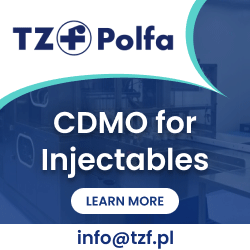
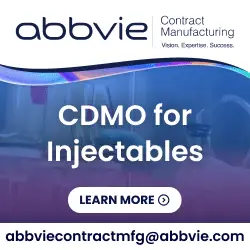
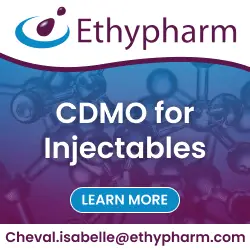
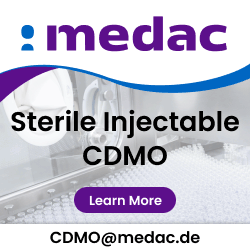
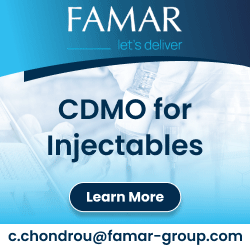
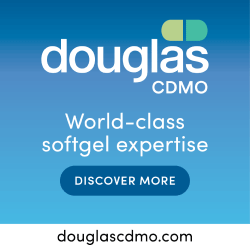




 Polfa Tarchomin is a leading Polish pharmaceutical company with 200 year tradition in manufacture and sale of pharmaceutical products.
Polfa Tarchomin is a leading Polish pharmaceutical company with 200 year tradition in manufacture and sale of pharmaceutical products.
















